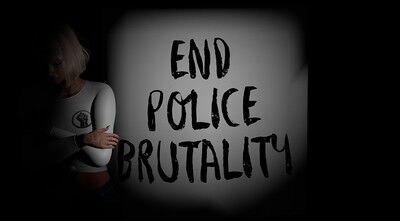Spann: Let’s be proactive as a generation
October 19, 2020
In my generation, too often, time is spent hovering over a screen, replying to a message or worrying about how someone on the other side of a social media platform views them instead of paying attention to the ways of the world.
Hiding behind our screens leaves my generation as looked down upon by others because it seems that we take our lives for granted.
In reality, this is our creative safety mechanism to help protect us from the sometimes toxic and horrid world we live in. Social media helps our generation by allowing individuals to read the news from both sides, listen to different perspectives and further research media topics.
One topic continually on the main screens of social media is the epidemic of police brutality cases and its occurrences. The definition of police brutality is: “police brutality is a civil rights violation that occurs when a police officer acts with excessive force regarding a civilian that is more than necessary than the crime or reason for apprehension.”
Recent examples can be found within the cases of Rodney King, Sandra Bland or Botham Jean — and those are just a few out of the approximate 2,000 reported incidents that either involve or end in an act or actions of police brutality.
Police brutality applies to American politics because the government was put into place — in theory — to protect the people and to step in when crimes have occurred.
Yet, even with the provided evidence that police brutality has happened, more often than not, the police involved only get placed on administrative leave or are given a slap on the wrist. Realistically, many police officers involved in brutality should be addressed and charged through the federal government. I feel this way because the states turn a blind eye when police brutality is brought up. They also seem to have laws in place that imply the officer’s actions were justified. The establishment of final judgment rule should lay on the federal front to prosecute those offenders to the entirety of the law.
The epidemic of police brutality is often connected with racial prejudice and linked to other groups’ discrimination. There have been groups that arise from distrusting “the brothers in blue.” This distrust arises because police brutality has become so prominent and never seems to be punished to the law’s fullest extent. These groups are Black Lives Matter, All Lives Matter, Baltimore United For Change and even the National Police Accountability Project.
After adding researching this topic upon prior knowledge, I have concluded police brutality can be reduced by introducing better training and even more of a presence of having harsher consequences for their actions.
The issue shouldn’t be about only getting introduced to the subject after someone dies. It should happen before something happens. This will only occur after several years of training and reintroduction of open conversation and better treatment of situations, whether it is a heightened situation with an unarmed person, belligerent or even violent. This may be accomplished within the next five to 10 years, but it takes action from the government or even just having it put into federal law.







